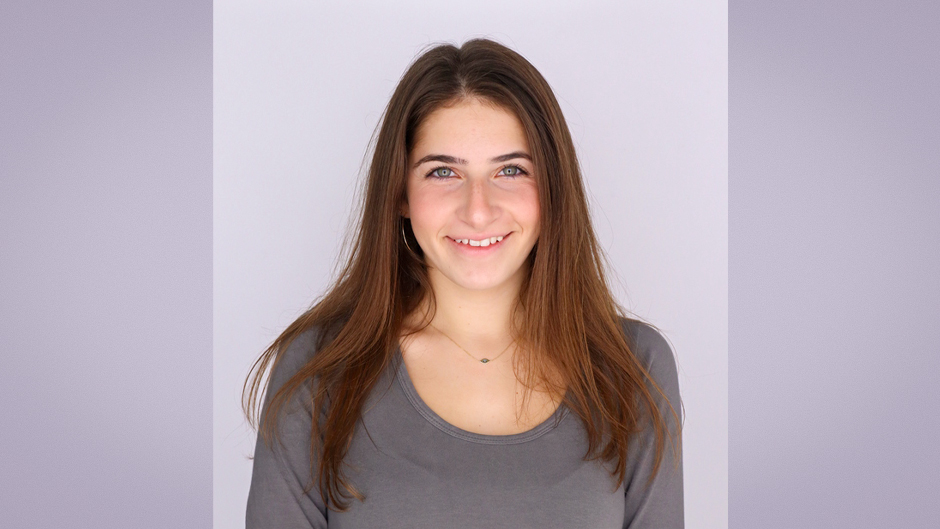When U.S. Surgeon General Vivek Murthy visited the University of Miami in February, the student who introduced him was Emily Goldstein, a senior and chair of Counseling Outreach Peer Education (COPE), a student organization that facilitates conversations with the student body surrounding mental health topics that impact college students and the campus community.
Growing up in Newton, Massachusetts, Goldstein’s parents made sure that she knew how important it was to take care of her mental health.
“My parents had always seen my mental health as equally important as my physical health and ensured my older brother and I knew how critical it was to care for both,” she said.
She will graduate in May with a Bachelor of Science in Education in Community and Applied Psychological Studies from the School of Education and Human Development.
Read about her experiences at the University and what lies ahead.
What attracted you to UM?
While going on the dreaded college tours, I found that each one was the same as the last. I heard, “Here’s the library (the floors get quieter the higher you go),” “We have over 200 clubs here,” and “We work hard and play hard, too!” countless times.
But, when I came to tour UM, on a whim, the environment felt different. The weather was beautiful, and students were in every corner of campus. Everyone seemed genuinely happy, and as I looked around, I kept thinking how happy I would be here.
What kept you here?
I love everything about UM: the academics, the people, the weather, the campus. I have found lifelong friends and mentors and made memories that I will never forget. The schoolwork can be hard but doing it in a Lakeside glider, with the sun on your face, a Starbucks in hand, your best friends next to you, and lizards scurrying by makes it fun. I love going to campus every day, discovering new places to settle in and study. The faculty, particularly in the School of Education and Human Development, have believed in me, inspired me, and helped me gain confidence and self-assuredness in my abilities.
What involvements did you pursue at the University?
I have strived to immerse myself fully, engaging in communities across campus. I am a peer educator in COPE and served as chair during my senior year. I have been president of the Community and Applied Psychological Studies (CAPS) organization for three years and have served as public relations officer (two years) and vice president (one year) of the Miami Motion Dance Team. I have been a member of the Delta Delta Delta sorority since my freshman year and served as director of first-year
experience during my junior year. I am a dean’s ambassador and served as co-recruiting head during my junior year. I have conducted research in the School of Education and Human Development, and am also an inductee into the Psi Chi Honor Society and Omicron Delta Kappa.
How has the University prepared you for the future?
The University of Miami has prepared me for the future in a myriad of ways. The CAPS major has influenced my view on life, as I have honed my critical-thinking skills, learned to write reflectively and vulnerably, and been empowered to consider my privilege. Most, if not all, of the CAPS courses emphasize these skills in some way and I believe I am a better human being because of it. The experiential opportunities and individual feedback from professors have allowed me to apply my learning and improve upon it, constantly refining my worldview and understanding of society and people.
I have taken classes that are directly related to my future career path and classes that are simply knowledge for knowledge’s sake. One course in particular, Cultural Diversity in Psychology (PSY 413) taught by Dr. Sannisha Dale, absolutely changed my life and influenced how I think and perceive social issues. A discussion-based course, we talked about all the facets of culture and their effect on individuals, communities, and macro-level systems and institutions. I heard classmates’ stories of oppression and injustice, which were powerful and brave, and served as a tangible reminder of just how much growing our society has left to do. I had the opportunity to write a term paper where I focused on Indigenous forms of healing, with particular relevance to mental health conditions, which furthered my understanding of culturally competent care in counseling (my future career).
What experience or accomplishment are you most proud of?
I am most proud of my work in COPE. As peer educators, COPE members serve as liaisons between the UM Counseling Center and the student body by promoting resources, providing mental health education, building rapport with students, and working to end the stigma on campus. We create, plan, and execute outreach events throughout the year to familiarize others with mental health issues. These events focus primarily on suicide, eating disorders, sexual violence, addiction, depression, anxiety, and stress, which are all particularly prevalent among college students. As chair this year, I have been playing an increasingly instrumental role in organizing and overseeing these operations, finding creative means to make our information accessible, and advising members on how to be safe spaces on campus. Through my work in COPE, I have genuinely felt as though I have made a difference and an impact on campus. We always say that even if we reach just one person, it is worth it.
What’s next?
Next year, I will return home to earn my master’s in education and human development, with a school counseling focus, at Harvard University (a one-year program). After that, I will be attending Boston College's two-year program for a master’s in mental health counseling.

